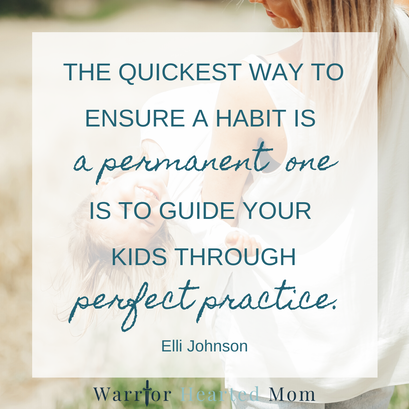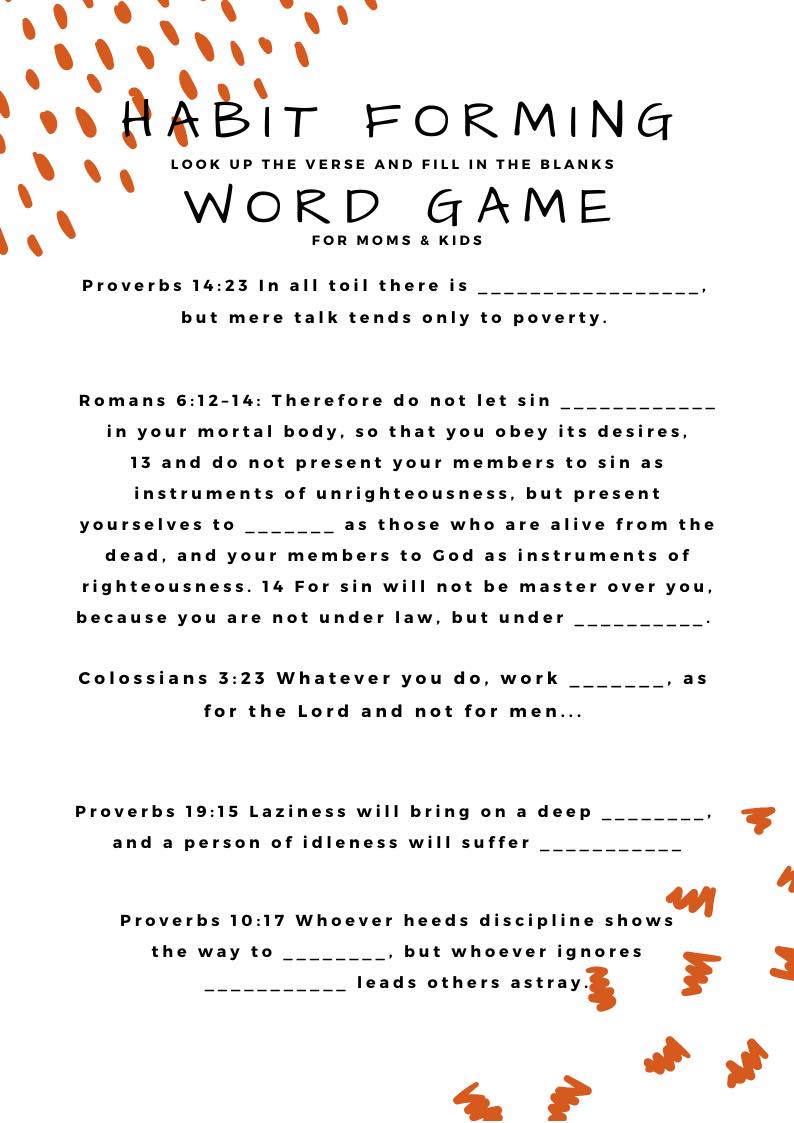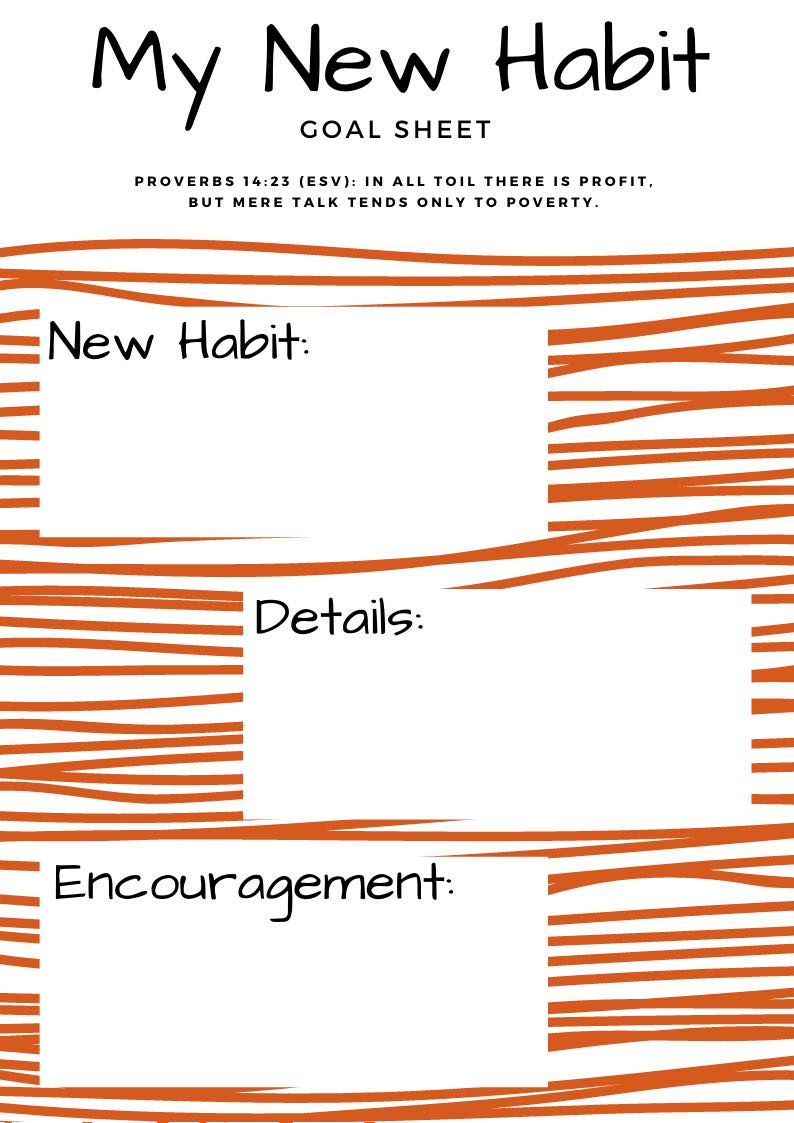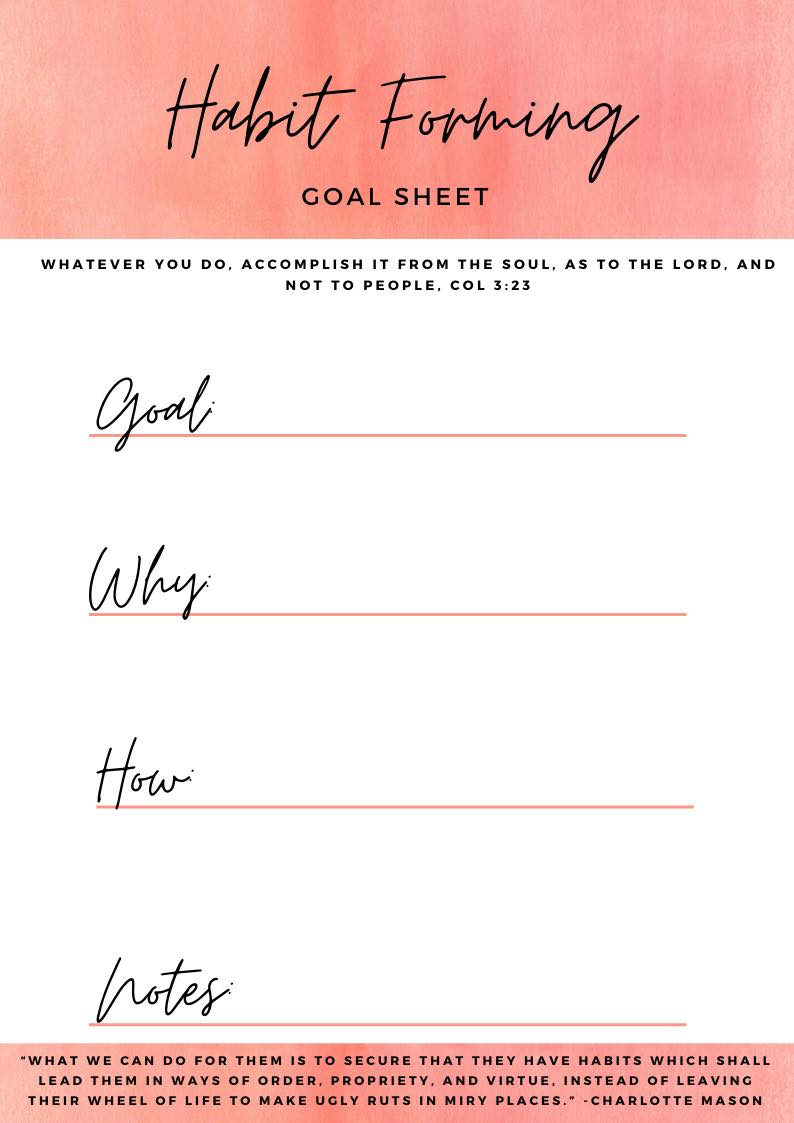|
I’m going to take a wild guess that my children aren’t the only ones with a bad habit every day. Or two. Or seven. So I’m going to share some of the practical ways I’ve found to weed them out. Spoiler alert: I’m a flower farmer and weeds rarely disappear the first time you pluck them. This isn’t a quick fix mama.
But take heart, Stefani posted an amazing blog post here about God’s escape from the frustrations of parenting when you feel like you’re constantly correcting your kids. If you haven’t read it - I encourage you to click here and give it a quick read! Which brings me to my disclaimers. The first is that this will require faithfulness. This isn’t self produced or muscled up from your own strength. It’s a blessed, fruitful consistency that grows out of relying on our Heavenly Father. My second disclaimer is simply that I don’t claim any of this wisdom as my own. I’ve struggled bunches with lack of discipline in myself which has trickled down to my children. In my research, I’ve found the bulk of my inspiration from scripture and the writings of Charlotte Mason and C.S. Lewis among others. So I’m right there with you mama! Know your “why”: Teaching our children things such as manners, kindness and obedience are big jobs for the long haul. If we don’t keep sight of our reason for this task, Satan’s attempts to foil our plans will be all too successful. First there are Biblical reasons we should take this job seriously. God asks us to work mightily for Him in all we do. (Col 3:23) We have the responsibility to be good stewards as parents to train our children. (Prov 13:24b) And we sincerely hope that our children will exhibit these things as Spiritual fruit stemming from a walk with the Lord. (Gal 5:22-23) Additionally, God has unique purposes for each of our families. The ways he has gifted & called each family will and should add more beautiful purpose to our mission as moms. (Be sure to checkout our printable and get your “why” written down!) On the other hand, If our why has unrighteous motivation, the habit likewise will be unwholesome when it comes down to it. When looking at my own life I can relate to this quote from Charlotte Mason: “... “given, on the other hand, a mother whose final question is, ‘What will people say? what will people think? how will it look?’ and the children grow up with habits of seeming, and not of being; they are content to appear well-dressed, well-mannered, and well-intentioned to outsiders, with very little effort after beauty, order, and goodness at home, and in each other’s eyes.” What: breaking down the concept of habits. Every time we think or act a certain way, it’s as if we flex a muscle in our brain. Each time we do that same thing, the “muscle” gets stronger. A habit is a very strong neural pathway. Each time we repeat the action it gets easier to do. We can be super grateful for habits. They’re what allow us to do most of our daily functions with very little effort or thought. Imagine how exhausted we’d be if we had to put the same effort towards walking and eating that we did when we were infants!
On the other hand, the absence of a good habit is the presence of a bad one. So if we as mothers allow bad habits to creep in, those are big strong muscles we have to retrain. The best way to do this is through a brand new habit. This is actually SO encouraging. Think about how discouraging it is when we try to correct a behavior by continually telling our children to “stop” and “don’t do that”. Creating a new habit turns this from a negative conversation to a positive one. I truly believe when this is done out of the overflow of God’s love and grace, it is a beautiful example of the renewal of the mind mentioned in scripture - in both ours and our children’s lives!
How: practically developing habits. If you’re feeling pressure to fix all of your children’s bad habits by introducing a bunch of new ones - please don’t! Charlotte Mason who was an exceptional educator, suggested taking one at a time. A wise and experienced mother that I know said she would choose three and never move on from one until it was solid. One habit is a great place to start, especially since you’re essentially forming a habit in yourself along with your child. Now, you’re about to pave a new road of thought in your child’s mind. But the car has already developed deep ruts on a different track. You’ll need to make room in your life for helping your child with this. Perfect practice makes perfect. The quickest way to ensure this habit is a permanent one is to guide them through perfect practice. This might mean letting the dishes wait while you help your child go through their entire morning checklist in a timely manner. Or it could mean you get up early to get a few things done so you have time in your day to help your child follow through. I’ve found so often that I allow my busy day full of “motherly” tasks to distract me from the more important duties of actually being a Godly mother. Only when this behavior flows as smoothly has a luxury sedan down an interstate is it time to begin handing it over to them. You can explain that you want them to keep up the good work, but this time you’re going be away for a moment. Continue to be a part of this action or thought process here and there to ensure that they don’t fall back into old ways. This is one reason why I recommend starting with one habit. It takes a fair amount of time for their brain to grow accustomed to this new road AND let the other become overgrown and less passable. Over time, habit forming does become a more natural process as a mother, as seen in the life of my friend who worked on three at a time with each of her eight children. Lastly, regarding rewards. The very best reward for doing something well is the satisfaction of a job well done. That being said, there are usually both positive and negative natural consequences that flow from your child’s efforts. For example, a child who promptly gets herself ready to go might have time to play outside with her kitten until everyone else is ready. Doing chores with gusto results in free time after schoolwork. On the other hand, a child who refuses to eat a healthy portion of supper in good time would miss out on dessert. A poor dishwashing job would need done again and therefore mean less free time.
Sometimes natural consequences seem a little harsh to us as mothers, but they are often exactly what is needed to help the child learn from the experience. Other times, you may have to be a little creative or resourceful, but finding consequences that fit and result in an actual experience are shown to be the best received by the hearts and minds of children.
But still, how? Well, here’s a little example of how this might look. In our example, Suzie comes home and leaves her shoes in the middle of the entry way every day. To help create a brand new habit, I would try to give her a new place for her shoes. This could be a crate to put them in, a new spot on a shelf or a completely different location altogether. Now it’s time to have a conversation so I would call Suzie in. Here’s what the conversation might look like: Suzie-Suzie-sweet-pea! We’re going to work on something together. I’m going to help you. Do you think we can work as a team like that? -Prooobably. I’m going to ask you to do one thing for me. Okay? -That sounds easy. Here it is. Whenever we come home from school or town, I need to put your shoes right here. Do you think you can do that? -Yes I think so. Every time? -Maybe. Well how about you try your very best, and I’ll help you remember too? -Sure I think we can do that. Awesome. And the cool thing is, if you start taking better care of your shoes, mom won’t have to call you downstairs when you’re playing to pick shoes off the floor. That would be pretty nice, right? (See how I help her see the natural good results?) -Definitely. Thanks for working together with me on this! -You’re welcome mama. Now, I just have to do the fun part of practicing with her. I can remind her the first few times before we even open the door. This way we’re sure to blaze a completely new trail from the old bad habit. Then I can watch and only remind her if I think she needs it. Eventually I’ll explain that I might not be there every time, but I still want her to keep up the good work. As she transitions to independence with her shoes, I still keep a close eye on it. “Relaxing” the rule is actually an inconsistency that will make it all the harder for her to keep from reverting to her bad habits in the future. I sincerely hope that God’s example of gentle yet righteous parenting in the way He Shepherds us sets the tone for habit forming in our children’s lives. In the end, faithfulness in love and God’s grace to cover our shortcomings provide us with great hope. I’ll leave you with this quote that simultaneously encourages me and kicks me in the pants.
“But who is able for these things? Not the child, immature of will, feeble in moral power, unused to the weapons of the spiritual warfare. He depends upon his parents; it rests with them to initiate the thoughts he shall think, the desires he shall cherish, the feelings he shall allow...The child is born, doubtless, with the tendencies which should shape his future; but every tendency has its branch roads, its good or evil outcome; and to put the child on the right track for the fulfillment of the possibilities inherent in him, is the vocation of the parent.” -Charlotte Mason
Download these simple worksheets to help you get started on your new habits today!
1 Comment
8/12/2020 08:17:17 am
I love how simply you've explained these habit-forming practices. It's not easy, and it takes diligence, but it is simple, and SO helpful!!
Reply
Leave a Reply. |
AuthorWrite something about yourself. No need to be fancy, just an overview. Archives
August 2021
Categories
All
|
||||||||||











 RSS Feed
RSS Feed


